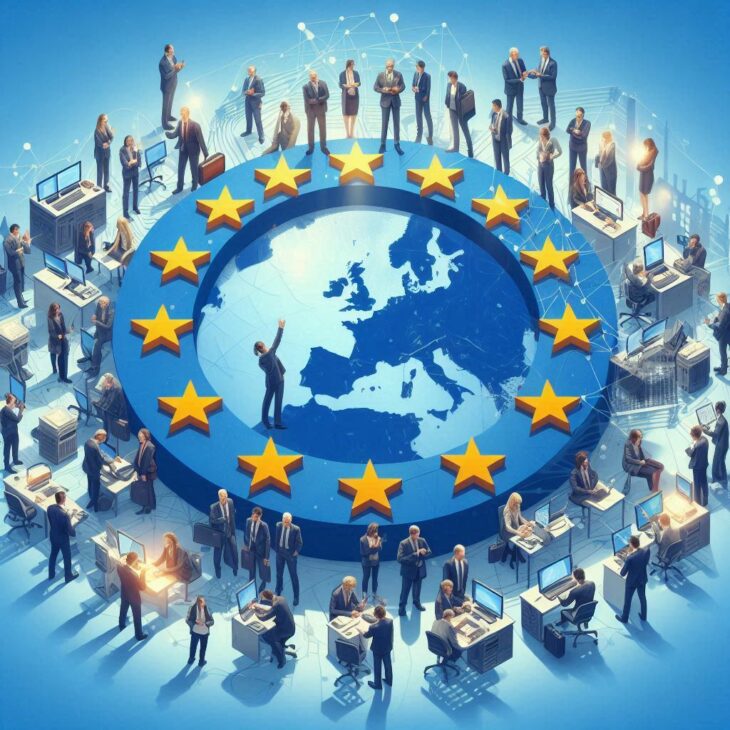
If we had true unity, could Europe be run like a Business?
Vol 27, Issue 03, 27 September 2024
Last week’s Nordic Business Forum, had an interesting keynote, about European economics and the idea of true collaboration and why it really isn’t something we see today. European countries all have varying budgets, policies, taxation and so on, but at the same time most countries have similar goals but carry out things individually. We have many common frameworks such as in employment and education, but often these are interpreted at the local (national) level.
However, it got me thinking – could Europe, and the countries within, with its rich tapestry of cultures, economies, and histories, be compared to businesses? If so, could we then think about a merger of those “businesses” as we try to bring some commonality such as with the EU? We already have similar initiatives in academia such as the Erasmus network, and are seeing new collaborations all the time, such as Horizon. Added to this, many educational institutions already have vast established networks of research and collaboration.

When running a business, each unit or department contributes to the overall success of the enterprise. Similarly, Europe is a continent of diverse nations, each with its own strengths and specialties. Germany, for instance, is known for its engineering and manufacturing prowess, while France excels in fashion and cuisine. Just as in a successful business, where each unit or department contributes to the overall success of the business, the prosperity of one European nation can positively impact the entire region.
Europe, through institutions like the European Union (EU), strives for unity and collective progress. The EU’s goals of economic stability, peace, and social progress mirror the shared objectives of a business aiming for growth and sustainability. The collaboration among European countries on issues like climate change, trade, and security reflects the cooperative spirit found in successful family enterprises. However, no business is without its challenges and occasional conflicts and Europe has faced and is facing its share of disagreements and crises. Whether it’s economic disparities, political differences, or social issues, European nations should navigate these challenges together. For example, Brexit highlighted the complexities of maintaining unity while respecting individual autonomy, much like resolving issues that occur in various sections within a business such as when units are merged or cut, often the case in businesses with operations located in several countries.
Businesses often need to adapt to changing market conditions and innovate to stay competitive. Europe has shown remarkable adaptability and resilience throughout history, continuously evolving, embracing new technologies and ideas. The continent’s commitment to innovation is evident in its support of research and development, startups, and sustainable practices.
There is also the idea that businesses carry a sense of legacy and heritage, often passed down through generations from the founders to the current owners. Europe, with its centuries-old traditions, monuments, and cultural heritage, embodies this sense of continuity. The preservation of historical sites, languages, and customs across Europe reflects the pride and responsibility of maintaining a rich legacy, much like a business might honour its founding principles and values.
When thinking about how management works, there is often a central management team that coordinates activities, sets strategic goals, and ensures that all parts of the business are working towards common objectives. The EU acts as this central management for Europe. It provides a framework for cooperation and decision-making among member states, ensuring that policies and initiatives are aligned with the collective interests of the continent. Just as any business needs rules and regulations to operate smoothly, the EU establishes a regulatory framework that governs various aspects of life in Europe. This includes trade regulations, environmental standards, and labour laws. These regulations help create a level playing field, promote fair competition, and protect the rights of citizens, much like how a business sets guidelines to ensure fairness and efficiency.
In addition, the EU provides financial support and investment to its member states, similar to how a business usually reinvests profits to support growth and development. Through funds like the European Regional Development Fund (ERDF) and the Cohesion Fund, the EU invests in infrastructure, innovation, and social programs. This financial backing helps less developed regions catch up with more prosperous ones, fostering balanced growth across the continent.
So, to answer my original question, comparing Europe to running a business highlights the importance of unity though diversity, shared goals, adaptability, and heritage. The emphasis is on collaboration, facing challenges with resilience, and cherishing unique identities while working towards common objectives. Europe’s strength lies in the unity and cooperation of its diverse nations. The EU acts as the central management, regulatory body, financial supporter, conflict resolver, and promoter of shared identity and values. By coordinating efforts and providing a framework for cooperation, the EU helps ensure that Europe, like a well-run and successful business, could truly thrive and prosper collectively.
After all, if multi-nationals can do it, why can’t Europe?
Featured image created with Microsoft Copilot.
- IBSEN meeting November 2025 – Split, Croatia - 12th December 2025
- Wondering where to get lunch in Kouvola town? - 5th December 2025
- IBSEN Realgame – an international ERP/SCM experience for students - 28th November 2025
